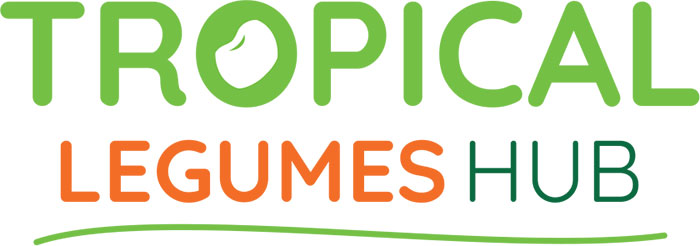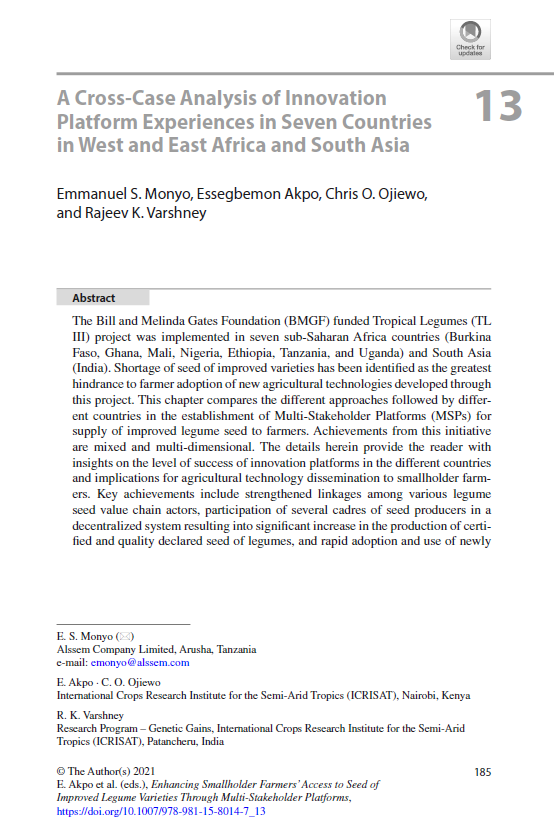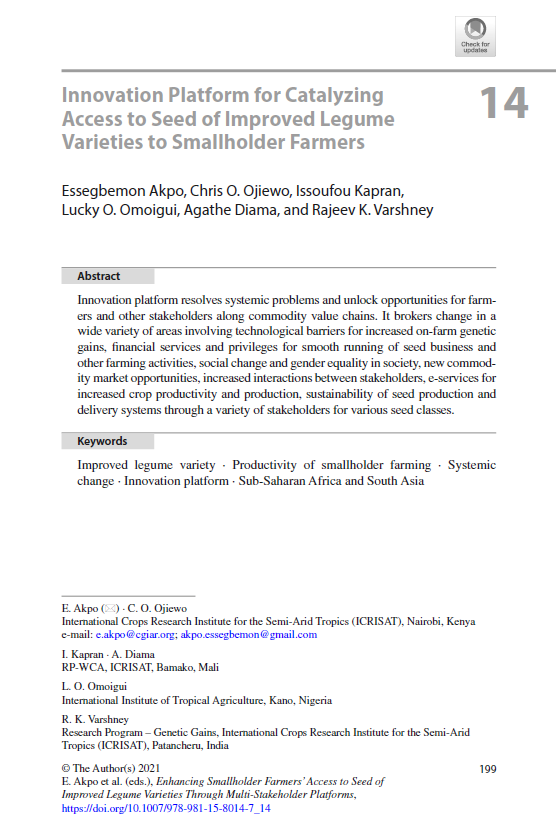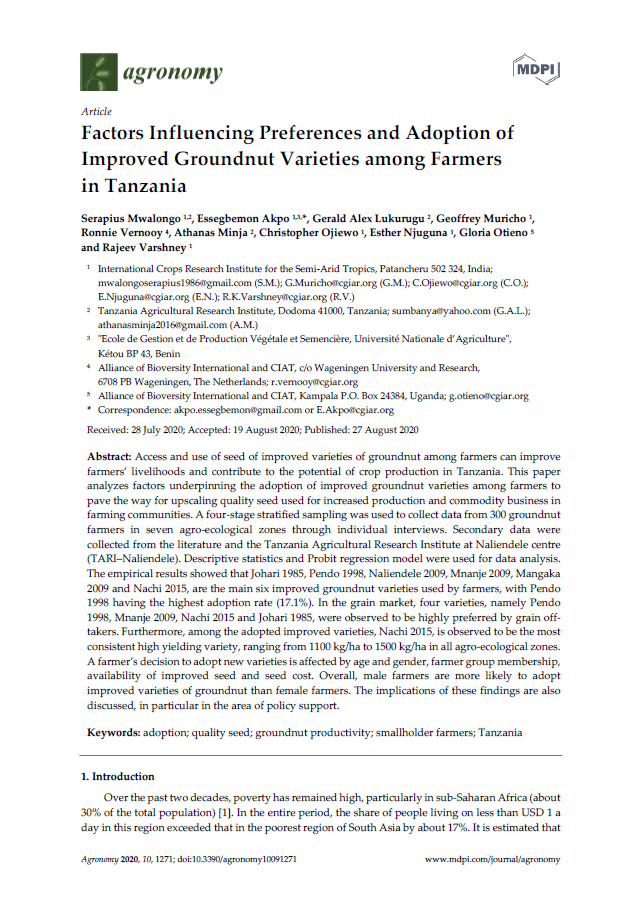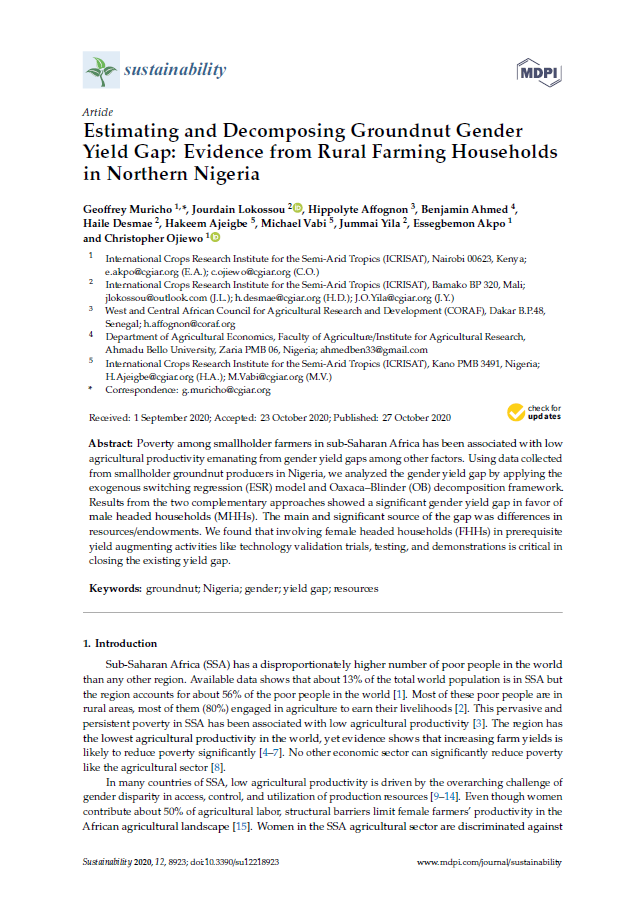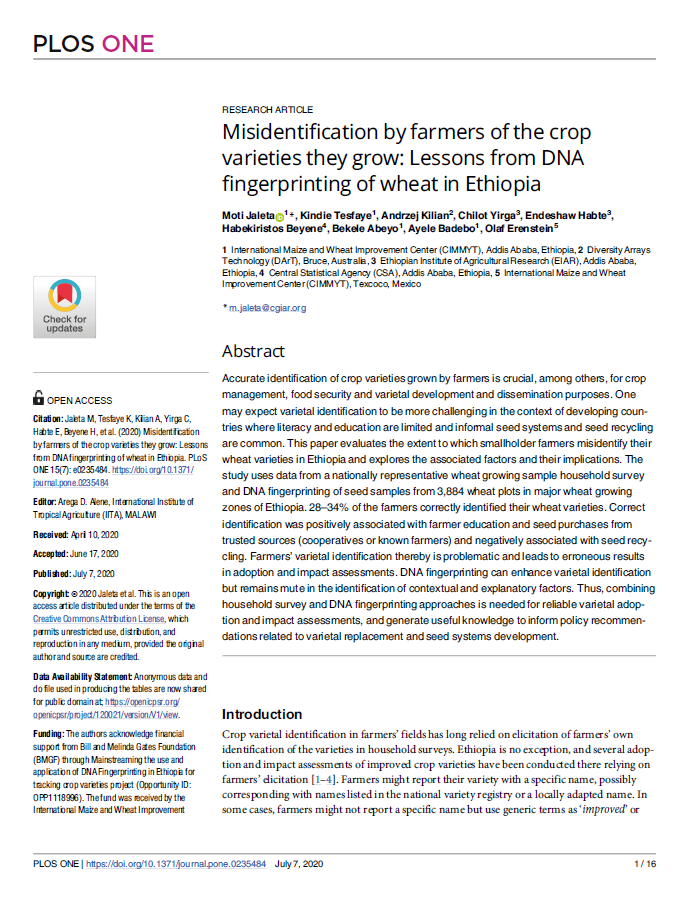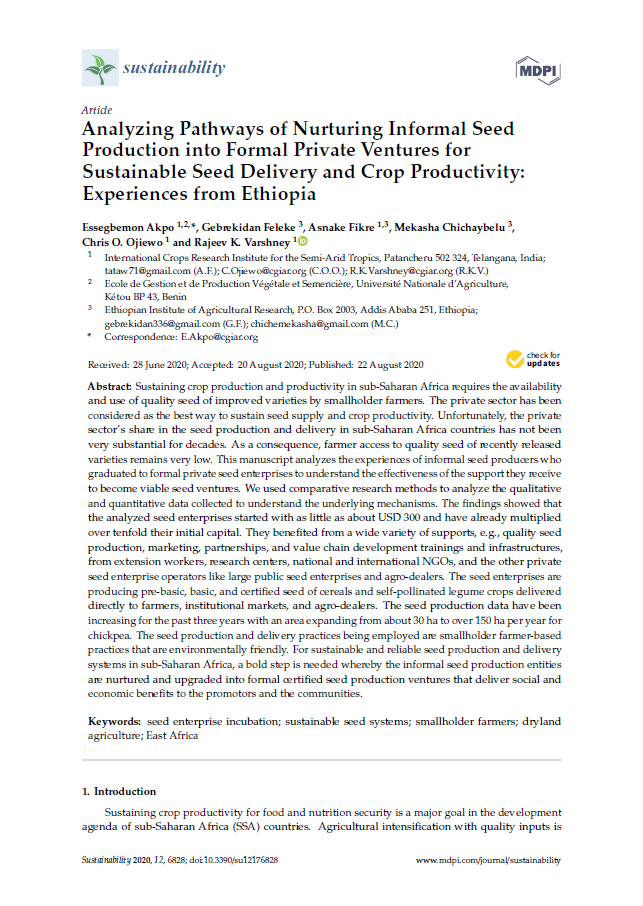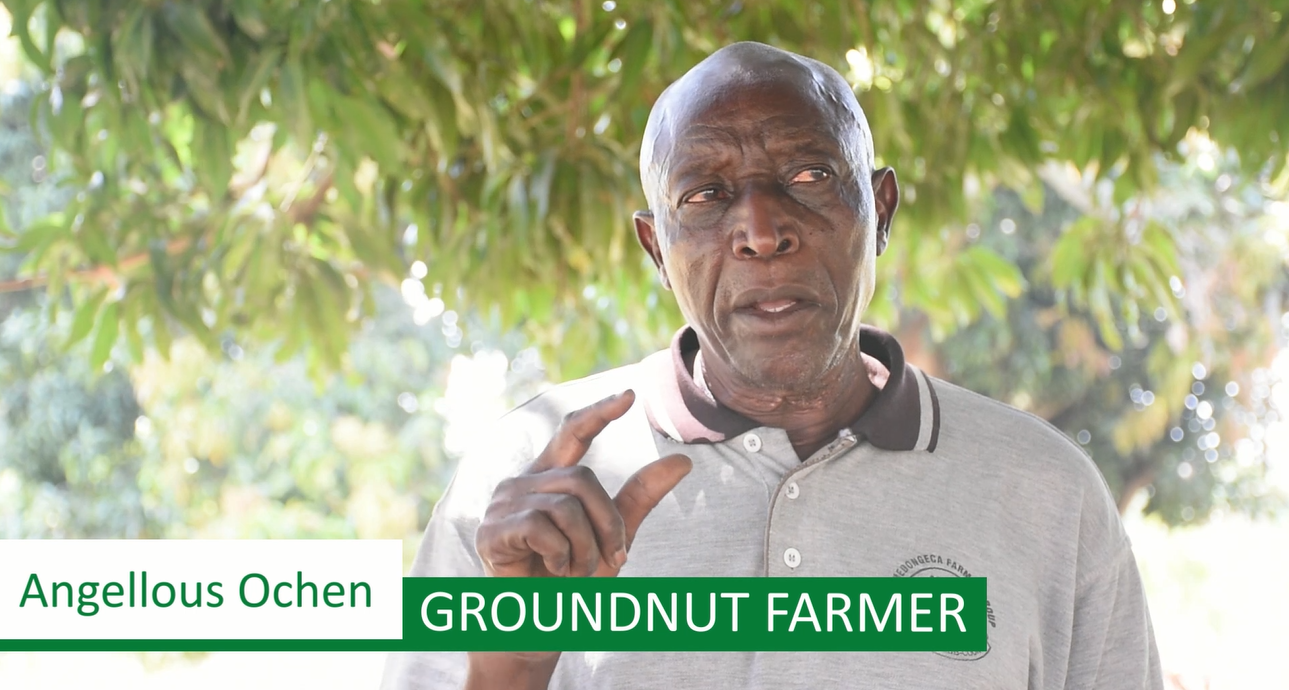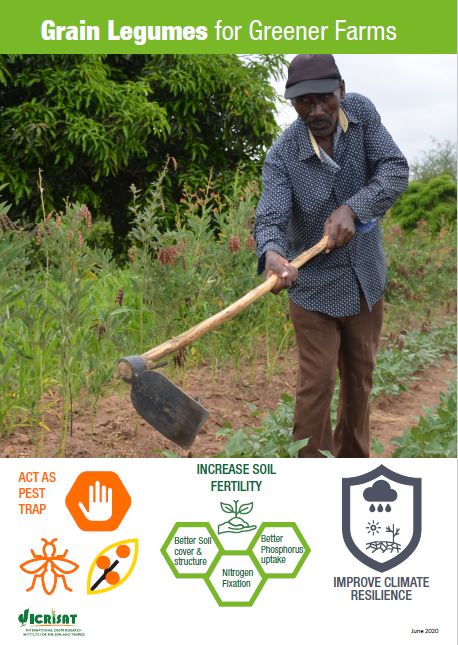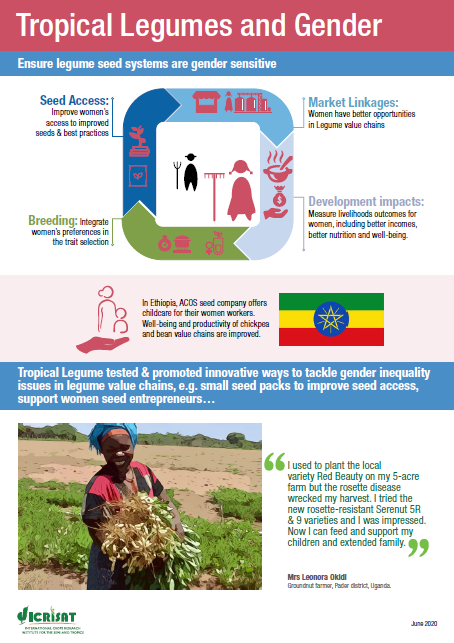Enhancing Smallholder Farmers’ Access to Seed of Improved Legume Varieties Through Multi-stakeholder Platforms (A Cross-Case Analysis of Innovation Platform Experiences in Seven Countries in West and East Africa and South Asia: Chapter 13 of 14)
Chapter 13 of a book that shares the experiences of TL III in facilitating smallholder farmers’ access to seed of improved legume varieties through innovation platforms in seven developing countries for the past 12 years.
Project: TLIII
File type: PDF (256.72 KB)
Enhancing Smallholder Farmers’ Access to Seed of Improved Legume Varieties Through Multi-stakeholder Platforms (Innovation Platform for Catalyzing Access to Seed of Improved Legume Varieties to Smallholder Farmers: Chapter 14 of 14)
Chapter 14 of a book that shares the experiences of TL III in facilitating smallholder farmers’ access to seed of improved legume varieties through innovation platforms in seven developing countries for the past 12 years.
Project: TLIII
File type: PDF (219.13 KB)
Using quality seeds of improved varieties to attract youth to agriculture and reduce migration
This video demonstrates how innovations in cowpea seed production and improved varieties in Ghana are reducing youth migration by attracting younger generations to agriculture. Watch the video to hear testimonies from farmers working in Ghana today.
Project: TLII, TLIII
File type: External site
Factors Influencing Preferences and Adoption of Improved Groundnut Varieties among Farmers in Tanzania
This paper analyzes factors underpinning the adoption of improved groundnut varieties among farmers to pave the way for upscaling quality seed used for increased production and commodity business in farming communities.
Project: TLII, TLIII
File type: PDF (374.11 KB)
Estimating and Decomposing Groundnut Gender Yield Gap: Evidence from Rural Farming Households in Northern Nigeria
Using data from smallholder groundnut producers in Nigeria, we analyzed the gender yield gap by applying the exogenous switching regression model and Oaxaca–Blinder decomposition framework. Results showed a significant gender yield gap in favor of male headed households.
Project: TLII, TLIII
File type: PDF (284.92 KB)
Misidentification by farmers of the crop varieties they grow: Lessons from DNA fingerprinting of wheat in Ethiopia
This paper evaluates the extent to which smallholder farmers misidentify their wheat varieties in Ethiopia and explores the associated factors and their implications.
Project: TLII, TLIII
File type: PDF (555.48 KB)
Analyzing Pathways of Nurturing Informal Seed Production into Formal Private Ventures for Sustainable Seed Delivery and Crop Productivity: Experiences from Ethiopia
This manuscript analyzes the experiences of informal seed producers who graduated to formal private seed enterprises to understand the effectiveness of the support they receive to become viable seed ventures.
Project: TLII, TLIII
File type: PDF (512.55 KB)
Reaping Cash from Improved Groundnut Farming
This video shows how the Tropical Legumes projects in Uganda helped develop and disseminate improved legume crop varieties.
Project: TLII, TLIII
File type: External site
Grain Legumes for Greener Farms
This infographic provides a brief overview of how grain legumes can contribute to greener farms.
Project: TLII, TLIII
File type: PDF (1.64 MB)
Tropical Legumes and Gender
This infographic identifies the ways in which gender inequality can be redressed in legume value chains.
Project: TLII, TLIII
File type: PDF (131.45 KB)
